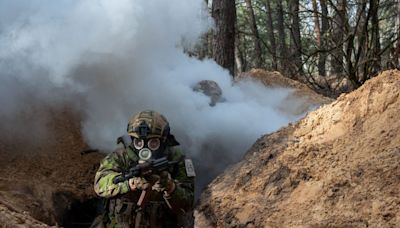Search results
People also ask
Are chemical weapons used in wars?
When were chemical weapons used?
What is a chemical weapon?
How was chemical warfare used in WW1?
2 days ago · Under the Chemical Weapons Convention (CWC) of 1993, the use of chemical weapons in war is prohibited, as is all development, production, acquisition, stockpiling, and transfer of such weapons.
- Barry R. Schneider
May 12, 2015 · The German military launches the first large-scale use of chemical weapons in war at Ypres, Belgium. Nearly 170 metric tons of chlorine gas in 5,730 cylinders are buried along a four-mile stretch of the front.
The interwar years saw the occasional use of chemical weapons, mainly to put down rebellions. In Nazi Germany, much research went into developing new chemical weapons, such as potent nerve agents. However, chemical weapons saw little battlefield use in World War II.
The Nazis did use chemical weapons in combat on several occasions along the Black Sea, notably in Sevastopol, where they used toxic smoke to force Soviet resistance fighters out of caverns below the city, in violation of the 1925 Geneva Protocol.
The use of toxic chemicals as weapons dates back thousands of years, but the first large-scale use of chemical weapons was during World War I. They were primarily used to demoralize, injure, and kill entrenched defenders, against whom the indiscriminate and generally very slow-moving or static nature of gas clouds would be most effective.
Apr 12, 2022 · AMSTERDAM, April 12 (Reuters) - Ukrainian President Volodymyr Zelenskiy has expressed concern that Russia could deploy chemical weapons in the war and there has been an unconfirmed report...
Apr 6, 2017 · They used phosgene gas, which causes breathing difficulties and heart failure, and mustard gas, which damages the respiratory tract and causes severe eye irritation and skin blistering,...



